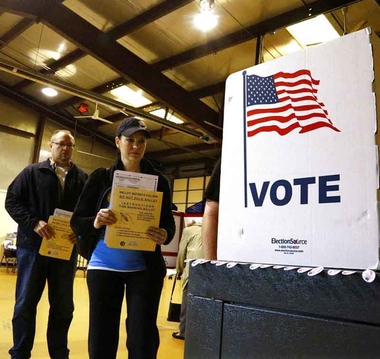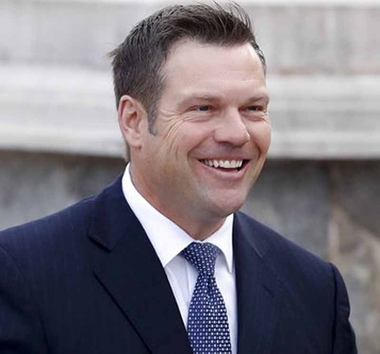State election officials gather amid uproar over voter data

Indianapolis (AP) — State election officials gathering this weekend amid an uproar over a White House commission investigating allegations of voter fraud and heightened concern about Russian attempts to interfere in U.S. elections say a lack of information from federal intelligence officials about attempts to breach voting systems across the country is a major concern.
Both Republicans and Democrats gathered in Indianapolis for a meeting of the National Association of Secretaries of State say they are frustrated because they have been largely kept in the dark by federal officials.
"The chief election official in each state should be told if there are potential breaches of that state's data or potential intrusions," said Republican Colorado Secretary of State Wayne Williams.
The Department of Homeland Security last fall said hackers believed to be Russian agents targeted voter registration systems in more than 20 states. And a leaked National Security Agency document from May said Russian military intelligence had attempted to hack into voter registration software used in eight states.
That backdrop has drawn an unusual spotlight to conference, which kicked-off Friday and is being attended by officials from 37 states. The FBI and Homeland Security were attempting to allay fears by holding a series of closed-door meetings Saturday on voting security with elections officials.
"We need to make sure we're doing everything and anything possible in 2018. We need better cooperation from federal agencies," said California Secretary of State Alex Padilla, a Democrat.
There is no indication so far that voting or ballot counting was affected in the November election, but officials are concerned that the Russians may have gained knowledge that could help them disrupt future elections.
The conference also lands one week after the commission investigating President Donald Trump's allegations of election fraud requested voter information from all 50 states, drawing bipartisan blowback. The request seeks dates of birth, partial Social Security numbers, addresses, voting histories, military service and other information about every voter in the country.
Trump has repeatedly stated without proof that he believes millions of fraudulent ballots were cast in the November election, when he carried the Electoral College but lost the popular vote to Democrat Hillary Clinton.

The commission was launched to investigate those claims and is being chaired by Vice President Mike Pence and Kansas Secretary of State Kris Kobach, who sent the information requests.
Kobach was not in attendance at the weekend event, prompting Democrats to reiterate their skepticism of the commission's intent and their concerns that the information could be used to justify stringent new voter security procedures that could make it more difficult for people to cast a ballot.
"For him not to be here is awkward, to put it mildly. What does he have to hide?" said Padilla. "If he's serious about working with states to improve the integrity of the election, this is the place to be and he's not."
A spokeswoman for Kobach did not respond to a request for comment on Saturday.
It remains unclear what exactly the hodgepodge of data will be used for. Pence spokesman Marc Lotter said the commission will look for potential irregularities in voter registrations and advise states on how they can improve their practices.
But many secretaries of state say all or parts of the requested data are not public in their states. Some Democrats have said the commission is merely trying to provide cover for Trump's unsubstantiated claims of voter fraud.
The U.S. does not have a federalized voting system. Instead, the process is decentralized, with 9,000 voting jurisdictions and more than 185,000 individual precincts. Officials believe that actually makes it difficult for hackers to have any sizable effect on the vote.
Sixteen states and the District of Columbia have said they will refuse to provide the information sought by the commission. The other states are undecided or will provide just some of the data, according to a tally of every state by The Associated Press.
But some state officials, such as Missouri Secretary of State Jay Ashcroft, a Republican, say they don't understand the concerns. Ashcroft said he is bound by state law that limits how much information he can release; the data he can turn over includes names, addresses and birth dates.
"Do I think that this is a case where there are politicians grandstanding? Of course," Ashcroft said. "As a statewide official, I am not allowed to apply the law differently because I like you or dislike you."
By Brian Slodysko, Associated Press. Copyright 2017 Associated Press. All rights reserved.
The Gayly – July 8, 2017 @ 4:45 p.m.





